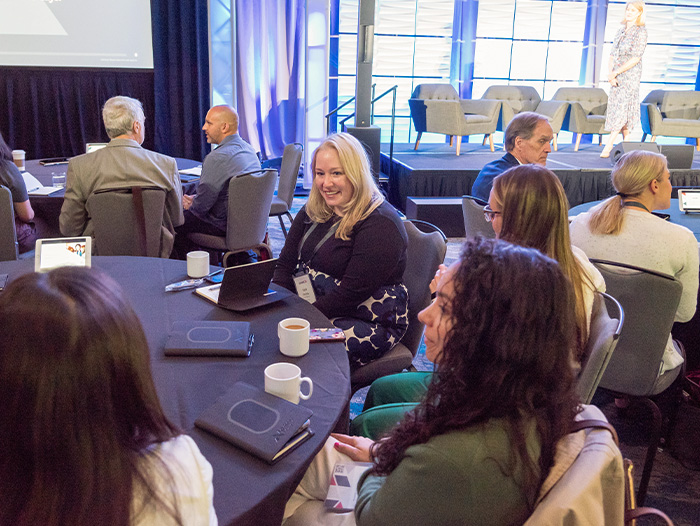Auto logout in seconds.
Continue LogoutWriting for the Wall Street Journal, Rachel Feintzeig explains what makes people procrastinate at work and offers several tips on how to beat procrastination and "get back to the important things languishing at the bottom of your to-do list."
Why we procrastinate at work
According to Feintzeig, "[w]e often procrastinate when we're not confident we can deliver" on an important task or project.
Although "[w]e complain we're so tired, or too busy, with no time to do the job, […] part of us is surely relieved there's no time to tackle that presentation that would level-up our career, or the book we've always wanted to write," Feintzeig writes. "Examined up close, the goal is terrifying, overwhelming, amorphous. Where do you even start?"
Because a bigger, more important project can seem intimidating, people often procrastinate by keeping busy with smaller, everyday tasks that need their attention. According to a recent analysis of meetings, emails, and documents from Microsoft, people spend almost a third more time communicating with other people at work than actually creating things.
"If we fail in little busy activities, we fail small," said Juliet Funt, author of a book on how to make time for creativity and reflection in the workday. She also added that many people have lost their tolerance for tackling big projects. "Open time freaks us out."
How to beat procrastination
To stop procrastinating and "get back to the important things languishing at the bottom of your to-do list," Feintzeig offers five tips on how to make big tasks more manageable:
1. Hold yourself accountable for certain tasks every day
To create accountability, Funt recommends writing down your three to five most important tasks and returning to the list whenever you have some time free. You can also set a timer for five minutes to get started on whatever task you're dreading the most.
2. Make your projects more tangible
According to Fuschia Sirois, a psychology professor who studies procrastination at Durham University in England, "[i]t's easier to keep [projects] imaginary." This way, they can stay "picture-perfect," Feintzeig writes.
To make your projects more tangible, Sirois suggests putting up Post-it Notes or pictures to represent what you want to do. You can picture yourself completing the project, the steps needed to get there, and remind yourself why the goal is important.
In a study from Sirois and a colleague, participants who reflected on how a task was meaningful to their own personal growth or someone they cared about ultimately procrastinated less than people who only focused on a positive part of the task.
3. Remind yourself of the consequences of procrastination
After Jeff Krimmel, a chief strategy officer in Houston, was laid off in 2020, he quickly found a new job, but he put his goal of expanding his professional network on the back burner for years.
"It was just the enormity of, what does that even mean?" Krimmel said. The idea of attending weekly networking mixers or getting lunch with strangers felt overwhelming to Krimmel, who also had a long commute and two young kids.
It wasn't until Krimmel thought about the potential consequences of not building his network, including how a career disruption could impact his family if he didn't have connections to fall back on, that he became more motivated.
"That cost just wasn't bearable any more to me," he said. Last summer, Krimmel committed to posting on LinkedIn every day and uses metrics, like how many people view his posts, as progress markers.
4. Break down large tasks into smaller pieces
"Nearly everything can be broken down into smaller pieces," Feintzeig writes.
Stephanie Kramer, who is the chief HR officer for L'Oréal's U.S. business and is also working on a book, puts all her tasks onto different lists each Sunday and then tackles them based on her mood.
For example, Kramer will write down the themes of an upcoming chapter of her book to help her reset after a long day of work meetings. If she's feeling sluggish, she'll sort and delete book-related emails to help jump start her energy.
And on Friday nights, she works late on deep, creative work. "I felt very free, like I was in this magic zone," Kramer said.
5. Figure out if you need to do something differently
"Sometimes procrastination is a signal you need to do something differently," Feintzeig writes. "Ask yourself why you're really putting a goal off. Is it too aggressive? Is the timeline too fast or too slow? Do you need help from a peer to get started?"
For example, Drew Bear, a tech worker in San Diego, started a podcast on the intersection of faith and business, but after the first episode took him 30 hours to produce, the project stalled. After months of procrastination, he realized that the end result wasn't worth the effort and decided to switch from a podcast to YouTube videos, where he believes he'll be able to reach more people.
Although Bear said there's some shame because his initial plan failed, he's now focused on a new way to get his idea off the ground. "When you do something you've never done, it's always harder than you expect," he said. (Feintzeig, Wall Street Journal, 8/6)
To-do lists are good for making sure you don’t forget things but bad for helping you prioritize and plan your time. With all the things on managers’ plates, most to-do lists just keep growing, until lost or tossed in frustration. Use this tool to make your workload manageable and focused.
Don't miss out on the latest Advisory Board insights
Create your free account to access 1 resource, including the latest research and webinars.
Want access without creating an account?
You have 1 free members-only resource remaining this month.
1 free members-only resources remaining
1 free members-only resources remaining
You've reached your limit of free insights
Become a member to access all of Advisory Board's resources, events, and experts
Never miss out on the latest innovative health care content tailored to you.
Benefits include:
You've reached your limit of free insights
Become a member to access all of Advisory Board's resources, events, and experts
Never miss out on the latest innovative health care content tailored to you.
Benefits include:
This content is available through your Curated Research partnership with Advisory Board. Click on ‘view this resource’ to read the full piece
Email ask@advisory.com to learn more
Click on ‘Become a Member’ to learn about the benefits of a Full-Access partnership with Advisory Board
Never miss out on the latest innovative health care content tailored to you.
Benefits Include:
This is for members only. Learn more.
Click on ‘Become a Member’ to learn about the benefits of a Full-Access partnership with Advisory Board
Never miss out on the latest innovative health care content tailored to you.


